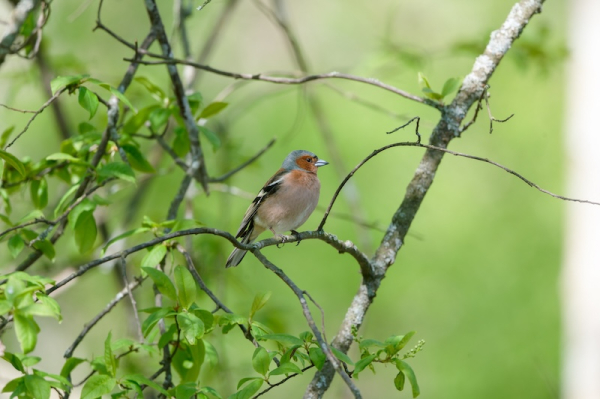
The number of chaffinches has declined the most in areas where logging has been extensive. In summer, the harmful effects of logging are compounded, as it destroys not only the forest birds’ habitats but also the season’s chicks. Photo: Micha Fager
- Next Article Student group excluded from tech event after Nazi salute incident
Bird nests are legally protected in Finland, but an estimated 100,000 are destroyed each year during summer logging operations. The destruction takes place primarily between April and July, the peak nesting period for forest birds.
On average, one to two bird pairs nest per forest hectare. In lush forest areas, the number can rise to five per hectare, according to Tero Toivanen, a conservation expert at BirdLife Finland.
“When a tree is felled, any nest, eggs or chicks within it fall to the ground. Chicks may die immediately, under machine tracks, or within days from cold and hunger,” Toivanen said.
Nests and chicks also suffer damage during pre-harvest clearing and from general disturbances caused by logging machinery.
Despite national laws prohibiting the disturbance of bird nesting, the timing of commercial forest harvesting often overrides these protections. However, forest owners have the authority to prevent this.
Annukka Valkeapää, director of the Compensate Foundation, says forest owners can prohibit summer logging in their own forests to protect nesting birds.
“Forest owners can simply ban logging during the nesting period. That allows birds to nest in peace and raise their chicks safely,” Valkeapää said.
The Compensate Foundation has developed a tool to help forest owners enforce this. Through the “Metsän arvo” (Forest Value) platform, owners can include a Nature Objective List in their logging contracts. This binding document restricts harvesting during the core nesting season, from 15 April to 31 July.
According to Valkeapää, many forest owners may be unaware of how logging affects nesting birds.
“It’s unlikely anyone wants to destroy bird nests knowingly. Logging can easily be scheduled outside the nesting season. Doing so also reduces logging-related damage and forest pest risks,” she said.
The impact of logging on bird populations has been most evident in areas with high levels of summer harvesting. Species such as the chaffinch have shown significant local declines.
Though rare in commercial practice, voluntary postponement of summer logging is legally permissible and scientifically supported as a method for reducing biodiversity loss. Environmental organisations and experts continue to call for increased awareness and accountability among forest owners and timber buyers.
HT
- Next Article Student group excluded from tech event after Nazi salute incident
Source: www.helsinkitimes.fi
